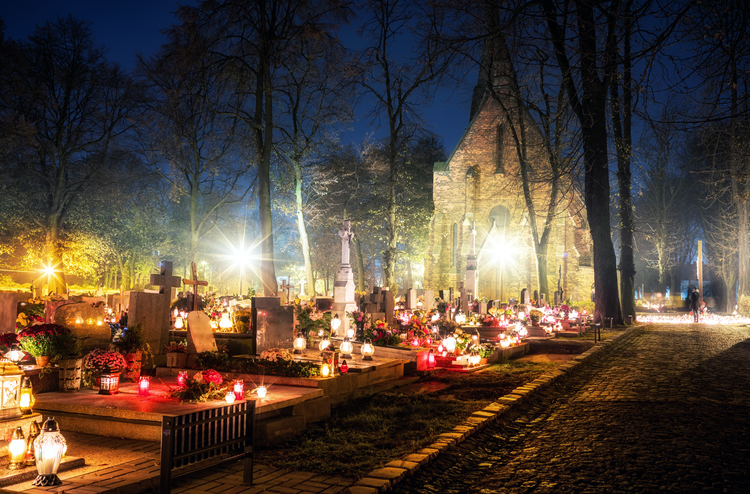
On this day when we celebrate the Solemnity of All Saints, Fr. Rolheiser writes that we used to pray for a happy death as part of our family prayer. I pictured that this way: you died cradled in the loving arms of family, friends, and church, fully at peace with God and everyone around you. That’s a good picture, the ideal, but not everyone gets to die that way. Randomness, contingency, and accidents too often have us die in broken, compromised, and cold situations: bitter, unforgiving, unforgiven, not fully reconciled, alienated from someone, not going to church, angry, drunk, dead by drug overdose, a victim of suicide. Death, not infrequently, catches some of us before we’ve had time to say what we should have said or do what we should have done. Too often, we die with unfinished business, too much of it. As the old Confiteor says, we need forgiveness for what we’ve done and left undone. Who among us doesn’t have unfinished business with someone whom death has taken away? Perhaps we had hurt that person, or he or she had hurt us, and it was never fully reconciled. Worse still, perhaps someone has died for whom we had felt hatred, and we should have made some gesture of reconciliation, but we never did. Now it’s too late! Death has separated us, and some painful bitterness now lies irrevocably unresolved, and we live with the guilt, wishing we had done something before it was too late. But it’s not too late. It’s never too late if we take seriously the Christian doctrine of the communion of saints. To believe in the communion of saints is to believe that those who have died are still alive and are linked to us in such a way that we can continue to talk with them, that our relationship with them can continue to grow, and that the reconciliation that wasn’t possible before their deaths can now occur. Why can this happen now? It happens because, as Luke’s account of Jesus on the cross teaches, death washes things clean. “Today, you will be with me in paradise!” Jesus speaks those words to the good thief on the cross, and they’re meant for everyone who dies without yet fully being a saint and without having had the time and opportunity to make all the amends and speak all the apologies that we owe to others. There is still time, after death, on both sides, for reconciliation and healing to happen because inside the communion of saints, we have privileged access to each other. There, we can finally speak all those words we couldn’t before. We can reach across death’s divide.
